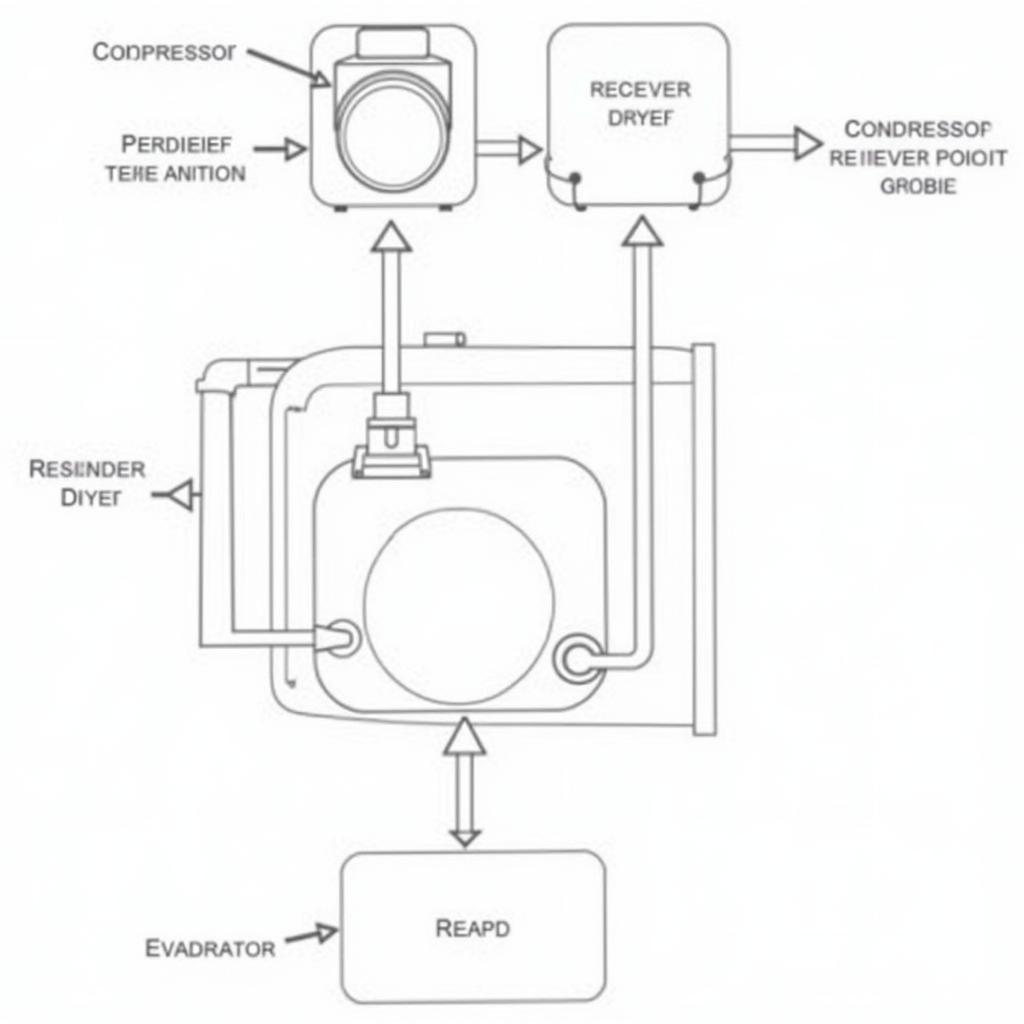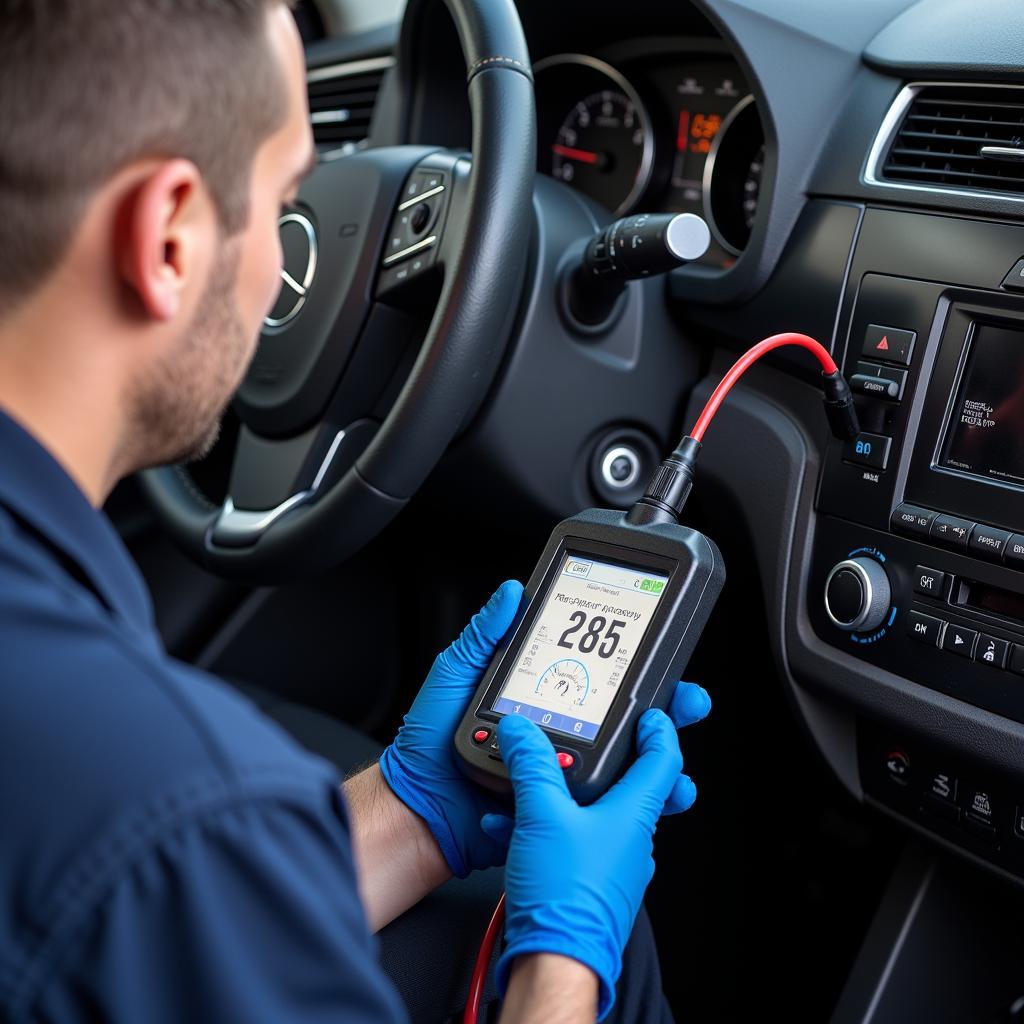Car Air Conditioning Service in Lancaster: Beat the Heat and Stay Cool
The summer heat in Lancaster can be brutal. Don’t let a faulty car air conditioner ruin your day. Whether you’re commuting to work, running errands, or embarking on a road trip, a properly functioning AC system is essential for a comfortable and enjoyable ride. This comprehensive guide provides you with all the information you need about car air conditioning service in Lancaster, ensuring you stay cool and comfortable behind the wheel.
Understanding Your Car’s Air Conditioning System
Before delving into the specifics of car air conditioning service in Lancaster, it’s helpful to understand the basics of how your car’s AC system works. Essentially, it’s a refrigeration system that uses refrigerant, a special fluid, to cool and dehumidify the air inside your car.
Here’s a simplified breakdown of the key components and their functions:
- Compressor: The heart of the system, the compressor pumps refrigerant through the system, creating high pressure.
- Condenser: Located at the front of your vehicle, often in front of the radiator, the condenser cools the refrigerant, transforming it from a high-pressure gas to a high-pressure liquid.
- Receiver/Dryer: This component acts as a reservoir for the refrigerant and removes any moisture that may have entered the system.
- Expansion Valve: This valve controls the flow of refrigerant into the evaporator.
- Evaporator: Positioned inside the dashboard, the evaporator absorbs heat from the cabin air as the refrigerant evaporates, resulting in cool air blowing into your car.
 Car Air Conditioning System Components
Car Air Conditioning System Components
Common Car Air Conditioning Problems
Over time, various issues can affect your car’s air conditioning system, leading to reduced cooling efficiency or complete system failure. Recognizing the signs of a failing AC system can save you from uncomfortable drives and costly repairs down the road.
Here are some common car air conditioning problems:
- Low Refrigerant Levels: One of the most frequent culprits of a malfunctioning AC system is low refrigerant levels. Refrigerant leaks can occur due to worn-out seals, damaged hoses, or corrosion.
- Electrical Issues: Malfunctions in the electrical components, such as the blower motor, switches, fuses, or relays, can disrupt the AC system’s operation.
- Compressor Failure: As the compressor is a vital part of the system, its failure can bring your AC to a standstill. Unusual noises, such as grinding or squealing, can signal compressor problems.
- Condenser Problems: Damage to the condenser, often caused by debris impact, can restrict airflow and reduce cooling capacity.
- Clogged Cabin Air Filter: A dirty or clogged cabin air filter restricts airflow into the cabin, diminishing cooling efficiency and potentially introducing unpleasant odors.
 Car AC Not Blowing Cold Air
Car AC Not Blowing Cold Air
When Does My Car Need AC Service?
Regular car air conditioning service in Lancaster is crucial for maintaining optimal performance and preventing costly breakdowns. However, knowing when to take your vehicle in for service can be tricky.
Here are some telltale signs that your car needs immediate AC attention:
- Warm Air Blowing: If you feel warm air blowing from the vents, especially when the AC is set to the coldest setting, it’s a clear indicator of a problem.
- Weak Airflow: Insufficient airflow suggests a possible issue with the blower motor, a clogged cabin air filter, or blocked vents.
- Unusual Noises: Strange noises, such as hissing, clicking, or grinding sounds, emanating from the AC system, warrant immediate inspection.
- Foul Odors: Unpleasant, musty odors coming from the vents could indicate mold or mildew growth within the system, requiring immediate attention.
- Leaks: Any signs of fluid leaking from under your car, particularly a clear, oily substance, could be a refrigerant leak.
What to Expect During a Car Air Conditioning Service
During a car air conditioning service in Lancaster, a qualified technician will perform a comprehensive inspection and address any existing or potential problems.
Here’s a general overview of the typical procedures involved:
- Visual Inspection: The technician will visually inspect all visible AC components, including the compressor, condenser, hoses, and belts, for signs of damage, wear, or leaks.
- Performance Test: Using specialized equipment, the technician will check the system’s operating pressures, refrigerant charge, and cooling capacity to ensure they meet manufacturer specifications.
- Refrigerant Recovery and Recharge: If the refrigerant level is low, the technician will use a recovery/recycling/recharge machine to evacuate the existing refrigerant, vacuum the system to remove moisture and contaminants, and recharge it with the correct type and amount of refrigerant.
- Component Repair or Replacement: Depending on the inspection and test results, the technician may recommend repairing or replacing faulty components, such as the compressor, condenser, expansion valve, or receiver/dryer.
- System Leak Test: After repairs or recharging, the technician will perform a leak test to ensure the system is sealed correctly and there are no refrigerant leaks.
- Cabin Air Filter Replacement: The technician will inspect the cabin air filter and replace it if necessary. A clean cabin air filter ensures optimal airflow and prevents contaminants from entering the cabin.
 Car AC Service Technician
Car AC Service Technician
Maintaining Your Car’s Air Conditioning System
Proactive maintenance is crucial for prolonging the lifespan of your car’s AC system and preventing costly repairs.
Here are some essential tips for keeping your AC in top condition:
- Regular AC Checks: Have your car’s air conditioning system checked annually or more frequently if you live in a hot climate or frequently use your AC.
- Run Your AC Regularly: Even during cooler months, run your AC for a few minutes every couple of weeks to lubricate the seals and prevent refrigerant leaks.
- Keep It Clean: Regularly clean the area around the condenser, removing any debris, leaves, or insects that may obstruct airflow.
- Replace Cabin Air Filter: Replace the cabin air filter every 12,000 miles or as recommended in your owner’s manual.
- Address Issues Promptly: Don’t ignore any warning signs of AC problems. Address issues promptly to prevent further damage and more extensive repairs.
Conclusion
A properly functioning car air conditioning system is essential for staying comfortable and beating the heat, especially during scorching Lancaster summers. Understanding how your AC system works, recognizing common problems, and scheduling regular maintenance can significantly prolong its lifespan and ensure a comfortable driving experience. If you experience any issues with your car’s AC, don’t hesitate to seek professional car air conditioning service in Lancaster to diagnose and resolve the problem effectively.

